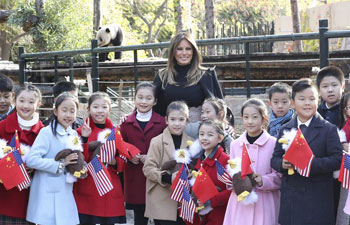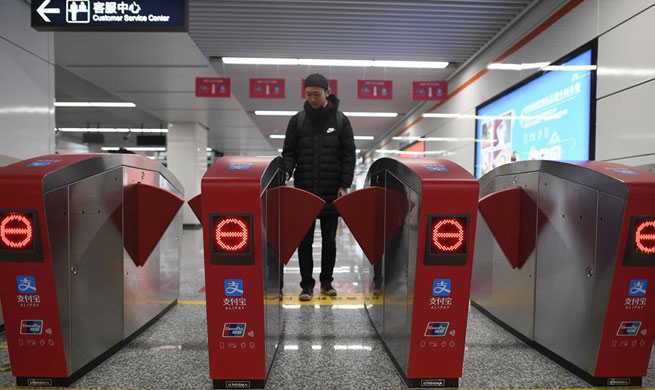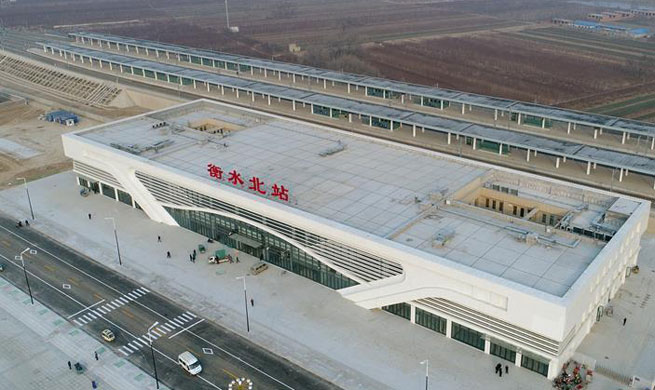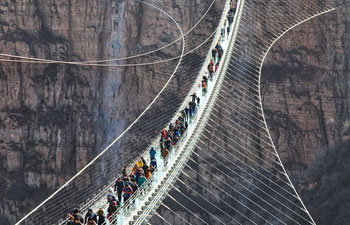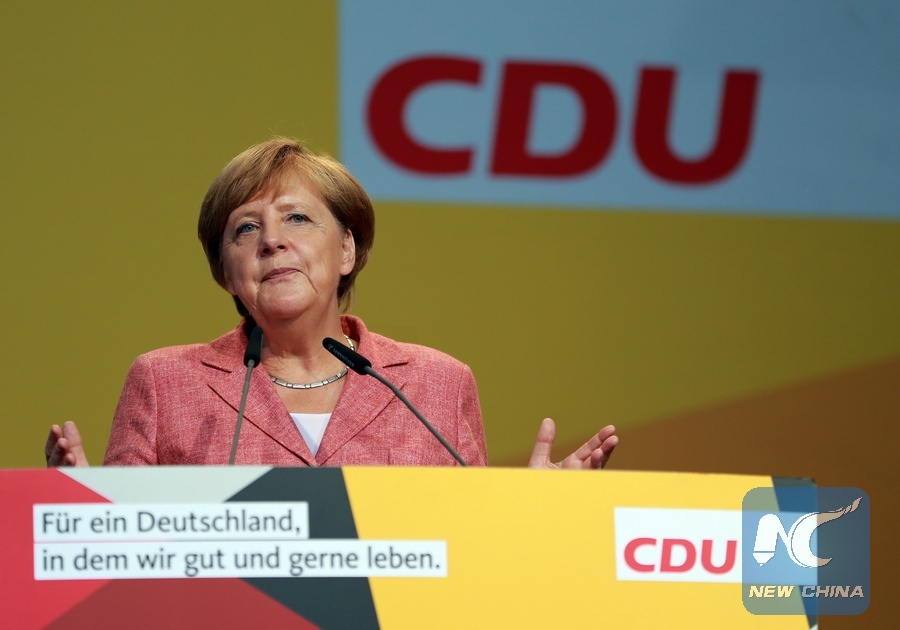
File photo: German Chancellor Angela Merkel speaks during an election rally for
BERLIN, Dec. 27 (Xinhua) -- German Chancellor Angela Merkel (CDU) is experiencing a decline in her public approval ratings due to the protracted formation of a new government, an opinion poll published on Wednesday has found.
47 percent of Germans surveyed want Merkel to step down before the end of what would be her fourth term in office in 2021, according to the survey conducted by the "YouGov" institute.
Only 36 percent of respondents indicated a preference for the CDU leader to retain the post of Chancellor for another four years.
The survey results marked a significant deterioration in Merkel's public approval ratings.
As recently as October, another "YouGov" poll had suggested that 44 percent of Germans wanted to see the veteran stateswoman serve another full term as Chancellor, while 36 percent called for her resignation before 2021.
"YouGov" interpreted the trend as evidence that German voters were increasingly disenchanted by the lack of progress towards forming a new federal government following elections in September.
Official discussions between the Christian Democratic Union (CDU), Christian Social Union (CSU) and German Social Democrats (SPD) over the potential re-launch of a "grand coalition" are scheduled to commence on Jan. 7.
Germany faces the likely prospect of re-elections should this second round of negotiations again fail to result in a viable legislative alliance following earlier unsuccessful "Jamaica" talks between the CDU, CSU, Free Democratic Party (FDP) and Greens (Gruene).
The FDP has announced that it might still return to "Jamaica" negotiations which it caused to collapse with its departure back in November. The party reiterated, however, that it would only do so on the condition of Merkel's resignation.
Speaking to the "Funke" media group on Wednesday, FDP Vice-President Wolfang Kubicki blamed Merkel, rather than his party leader Christian Lindner, for the failure of "Jamaica" talks and demanded that the CDU undertake personnel and strategic changes.
Kubicki accused Merkel of having purposefully sabotaged negotiations with the FDP and Greens as part of a plan to ensure the continuation of the acting "grand coalition" between the CDU, CSU and SPD.
"Today she has the SPD in exactly the spot where she wanted it to be," Kubicki said, adding that his preference would be for a coalition between the FDP and renewed CDU and CSU parties, an alliance that Kubicki believed would not be unfeasible after re-elections.
Meanwhile, the CDU, CSU and SPD became embroiled in quarrels over refugee policy and Europe on Wednesday.
Armin Laschet, CDU Vice-President and Governor of North-Rhine Westphalia, provoked a spat over refugees' right to family re-unification when he urged his party to partially accommodate SPD demands on the issue.
In turn, Annegret Kramp-Karrenbauer (CDU), Governor of Saarland, rejected this proposal in the newspaper "Welt" and insisted that a new government would have to maintain an existing temporary ban which prevents migrants who have received subsidiary protection (instead of political asylum) from bringing their families to Germany.
The SPD and Greens have repeatedly advocated for Berlin to fulfill its obligations under the Geneva Convention to grant refugees the rights to family re-unification.
Also on Wednesday, German Foreign Minister Sigmar Gabriel (SPD) identified support for reforms of the European Union (EU) outlined by French President Emmanuel Macron as another condition which had to be met for the SPD to join a new "grand coalition".
Highlighting potential for related strife between the prospective coalition partners, CDU governor Kramp-Karrenbauer responded by ruling out agreement to Macron's proposals to create a new Eurozone budget and supra-national Finance Minister for currency union. Instead, Kramp-Karrenbauer said she could envision establishing a European Monetary Fund as the next step in the Single Currency's development.







